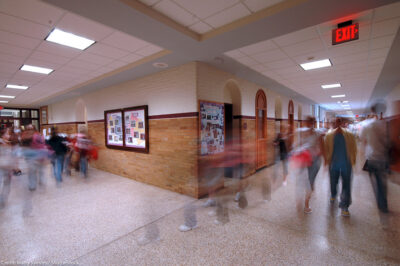Supreme Court Sets Aside Appeals Court Ruling in Jacksonville School Prayer Case, Orders Further Review
FOR IMMEDIATE RELEASE
MIAMI, FL–The American Civil Liberties Union’s seven-year battle to address school-sponsored prayer at graduation ceremonies in Jacksonville public schools may be one step closer to being resolved, the ACLU said today.
Earlier today, the U.S. Supreme Court vacated the March 15th ruling of the U.S. Court of Appeals for the Eleventh Circuit, which held graduation prayers to be constitutional, and sent the case back to the appeals court for further review in light of the Supreme Court’s recent decision striking down student-led prayers at football games.
At the conclusion of its last term, the Supreme Court held in Santa Fe Independent School District v. Doe that the school district’s policy of permitting its student body to vote whether to have prayers before football games violated the Establishment Clause.
“Prayer must not be state-sponsored or put to a majority student vote,” said Ken Hurley, whose son, a Jacksonville public school student, is a plaintiff in the Florida lawsuit.
“We are pleased that the Supreme Court has vacated the Eleventh Circuit judgment in this case,” said William J. Sheppard, a Jacksonville attorney who, along with D. Gray Thomas, serves as ACLU cooperating counsel in the school prayer case, Adler et al. v. Duval County School Board. “We look forward to the Court of Appeals proceeding in light of the Supreme Court’s Santa Fe decision, which we believe controls the outcome in our case.”
Although the Adler case addresses prayer at graduation ceremonies rather than football games, both cases raise similar questions about the constitutionality of permitting students to elect senior class “chaplains” to deliver prayers at school-sponsored events.
“The Supreme Court has clearly declared that the school’s policy permitting students to vote on an ‘invocation and/or message’ was a sham,” said Howard Simon, Executive Director of the American Civil Liberties Union of Florida.
“The point of the First Amendment’s guarantee of religious freedom is to prevent a majority from imposing its views on members of minority religious faiths,” he added. “We fully expect the appeals court to follow the Supreme Court’s lead on this issue.”
Background of the case
ACLU of Florida cooperating attorneys from the Jacksonville law firm of Sheppard, White & Thomas filed suit in the U.S. District Court for the Middle District of Florida in Jacksonville on May 15, 1998, on behalf of several students and parents in the Duval County Public School District who challenged the school board’s policies as a violation of the Establishment Clause of the U.S. Constitution.
A previous lawsuit with similar claims was brought in Jacksonville by the ACLU in 1994 but was vacated as moot in 1997 prior to a final decision on its merits by the U.S. Court of Appeals for the Eleventh Circuit after the students who had brought the earlier suit graduated.
Following the 1992 decision of the U.S. Supreme Court in Lee v. Weisman prohibiting “prayer, benediction, or invocation at any graduation ceremonies” conducted or sponsored by a public school board, the Duval County School Board adopted a policy authorizing students to deliver prayers and religious messages at commencements. The policy and guidelines contain no requirement that the prayers and other religious messages at graduation ceremonies be non-sectarian.
As one example, the following prayer was offered at the June 10, 1993, Jean Ribault Senior High School commencement:
Help us to understand that we must help the one who plunders in some agony or strife, for we know it must be our Christian duty to pay heed to every pride, and deny no soul the kindness of some need we can supply. Lord help us to realize that you made us all to matter to you, our maker, as well as to each other. These and other blessings we ask in the Lord Jesus’ name. Amen
In May 1999, a three-judge panel of the appeals court ruled that “The Duval County school system’s policy of permitting graduating students to decide, through majority/plurality vote, whether to have student representatives give unrestricted messages at the beginning and closing of graduation ceremonies facially violates the Establishment Clause [of the First Amendment to the U.S. Constitution].” That opinion was later vacated by the full Court of Appeals for the Eleventh Circuit, which declared student-led prayers at graduation to be constitutional.
Stay Informed
Every month, you'll receive regular roundups of the most important civil rights and civil liberties developments. Remember: a well-informed citizenry is the best defense against tyranny.




